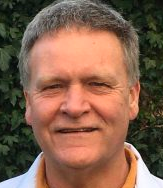Musicians, Singers, Dancers, Actors
The Alexander Technique: Musician’s Method for improvement
By kind permission of Lori Schiff, Juilliard School, New York
Brilliant and Comfortable Bass Playing by Peter Buckoke
By kind permission of Peter Buckoke, Professor of Double Bass, Royal College of Music’

The Alexander Technique has a long history of helping instrumentalists and singers to perform with less strain/stress and likelihood of injury. Musicians carry out some of the most complex and demanding physical movements of any profession. These movements are repeated over and over again and, if not carried out in a well coordinated manner, can lead to pain/discomfort and Repetitive Strain Injury (RSI).

Alexander Technique Hands on Guidance
A 2012 survey* of professional orchestral musicians found that 50% were suffering at the time of the survey with work-related pain or injury and that 87% had suffered with work-related pain or injury at some stage during their career.
* Bronwen, Ackermann et al: Medical problem Performing Art, 2012.
The Alexander Technique which is widely available on a 1:1 basis in private practice helps musicians to play their instruments in a better coordinated manner so muscular strain is greatly reduced and pain and discomfort is often alleviated. An additional benefit of Alexander Technique sessions for a talented musician is that they are then more able to reap greater rewards from the instruction of their music teacher.
It is for this reason that the Alexander Technique is part of the curriculum at the main schools of performing arts in the UK and around the world – examples include Guildhall School of Music and the Royal College of Music in London, the Juilliard School of Performing Arts in New York, the Boston Conservatory of Music, USA and the Royal Conservatory of Music in Toronto, Canada.
Please scroll to the bottom of the page to see the video of the Alexander Technique in action at Juilliard School of Performing Arts, New York. ‘
What Famous Musicians say:
Alexander students rid themselves of bad postural habits and are helped to reach with their bodies and minds, an enviable degree of freedom of expression.
Michael Langham, Director, The Juilliard School, New York USA
The Alexander Technique can be sustaining; it is something that if learned well, can be carried along with you for the rest of your life. It gives you confidence to be who you are when you are up in front of an audience.
Patrick Maddams, managing director, Royal Academy of Music, London.
It is my opinion that every singer and performer should enrol in a course of Alexander lessons. I have personally profited by doing so.
Barbara Bonney, International classical singer and Visiting Professor at Royal Academy of Music, London
After an Alexander session it felt like someone had poured a full canister of three in one oil into my neck. After two sessions, I felt 20 years of neck tension fade away and I felt my chest naturally expand. I used to wrap myself round my instrument for years and when your head is inside the music, it’s like an anaesthetic, you don’t feel the discomfort but I gradually became aware of how I had been causing myself problems. I feel I have a greater sense of control when I’m playing if I consciously relax and it’s easier overall, particularly if I’m playing something that is technically difficult.
Máirtín O’Connor, leading traditional Irish accordion player
Forty years ago, after one of my concerts, Adrian Boult told me that if I continued to conduct like that I’d become a cripple, and that I must take lessons in the Alexander Technique. Today I am still having lessons – as with music, there is no end to the learning process. It affects not only the use of the body, but also one’s views of oneself and one’s behaviour. For the aches and ills that come with the years, the Technique can work miracles.
Sir Colin Davis, Conductor
We already notice, with growing amazement, very striking improvements in such diverse things as high blood pressure, breathing, depth of sleep, overall cheerfulness and mental alertness, resilience against outside pressures, and in such a refined skill as playing a musical instrument.
Professor Nicholas Tinbergen, Nobel Prize winner for medicine and physiology
What Music Teachers and Amateur Musicians say:
I had RSI in both wrists whilst I was a viola student at the Royal Academy of Music.I tried physio with no success. I next tried Alexander Technique (AT) which solved the problem.
These days I also use the AT consciously when conducting – and I find that the choir sing in tune!
Clare, Musician: School Teacher/ Head of Music/ RSI
I had a few months’ lessons chiefly because I had damaged my shoulder/neck playing the double bass. Where physio proved of some sort term benefit, the relaxation techniques and postural awareness that I learnt through my Alexander lessons, have given me a tool for life. I realised how much tension there was in my body and thus the lessons were of benefit to me not only as a musician, but for life in general. Derek was clearly the best Alexander teacher I had and I recommend him heartily.
EJP, Musician and Music Teacher
Following an incident in which I damaged my left arm and neck I was having problems with many everyday activities. As a violin teacher it was also affecting my playing and I was experiencing quite a lot of pain. I had heard about the Alexander Technique through my musical connections and decided to give it a try. Although it needed a certain amount of dedication the rewards were well worth the effort. Not only did I become pain free but I found that my violin playing actually improved and ordinary everyday activities required much less effort. I have found the Technique to be so beneficial that I continue to have lessons periodically some 25 years later.
Susan, Violinist and Music Teacher
I had my first Alexander Technique lessons with a view to improving my organ playing, and was able to refine my playing technique, making the movements of my fingers and feet more supple and economical, thus enabling me to deepen my concentration and make my playing more controlled and musical. As Organist and Director of Music in a church, I train a choir and find that the posture cultivated in my Alexander lessons enables me to demonstrate authoritatively, without tension, to the singers, as well as helping me to conduct them with suitably fluent, uninhibited, communicative movements.
Church Organist, Director of Music and Music Teacher.
Now at seventy I am retired and I have more time to pursue my musical interests – choral singing and playing classical guitar. I find that my knowledge of Alexander Technique helps me in a remarkable way with both music practice and performance, and it has greatly increased my enjoyment.
James, amateur musician and singer.
My singing has improved since I have done the Alexander Technique because I am now able to be more relaxed when singing.
I have entered a number of local music competitions and in my second year won the trophy in the classical song class.
James
What Actors Say:
Of all the disciplines that form the actor training program, none is more vital, enriching and transformative than the Alexander Technique.
Harold Stone, Associate Director, Theatre Department, The Juillard School, New York, USA
I find the Alexander Technique very helpful in my work. Things happen without you trying. They get to be light and relaxed. You must get an Alexander teacher to show it to you.
John Cleese, actor
The Alexander Technique has helped me to undo knots, unblock energy and deal with almost paralysing stage fright.
William Hurt, actor



